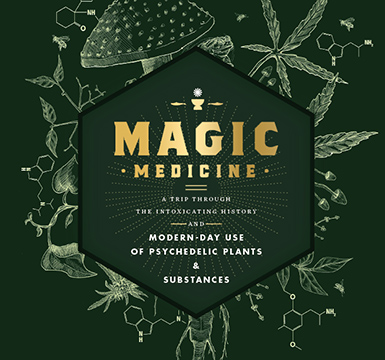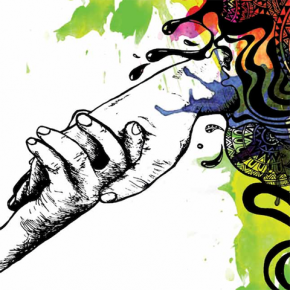
Fantastic New Trip-Sitting Guide: The Manual of Psychedelic Support
Even the hardiest, most vocal psychedelic enthusiasts recognize that trip experiences can be intense and sometimes difficult. Especially when taken in unfamiliar surroundings — such as crowded music festivals or in the desert heat of Black Rock City — psychedelics can cause untimely emotional meltdowns. Now there’s an excellent guide for handling psychedelic crises, produced by some of foremost experts on harm reduction techniques. It’s called “The Manual of Psychedelic Support,” and its laundry list of contributors includes the Erowids, Rick Doblin, Jon Hanna (the founder of Mind States), Linnae Ponté (who runs MAPS’ excellent Zendo harm reduction tent), five members of Kosmicare UK, Dave...
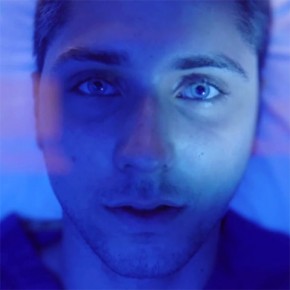
Scientists are crowd-funding the first ever LSD brain imaging study
Dr. David Nutt and Dr. Robin Carhart-Harris, the researchers who blew your mind with a landmark psilocybin study in 2013, are at it again. This time they’re examining the effects of LSD on the brain, and they want your help. The active research phase has already been conducted — 20 volunteers were dosed and scanned, producing the world’s first images of brains on LSD. Now the researchers must analyze the raw data before they can publish the results. To fund this final phase of the study, the scientists have launched a crowd-funding campaign on Walacea.com in partnership with the Beckley Foundation. Within the first 24 hours,...
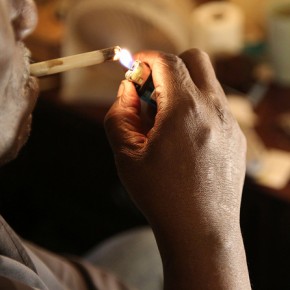
Many people use drugs – but here’s why most don’t become addicts
Today’s post is by Paul Hayes, Hon. Professor Drug Policy at London School of Hygiene & Tropical Medicine. It was originally published on The Conversation. Drug use is common, drug addiction is rare. About one adult in three will use an illegal drug in their lifetime and just under 3m people will do so this year in England and Wales alone. Most will suffer no long-term harm. There are immediate risks from overdose and intoxication, and longer-term health risks associated with heavy or prolonged use; damage to lungs from smoking cannabis or the bladder from ketamine for example. However...
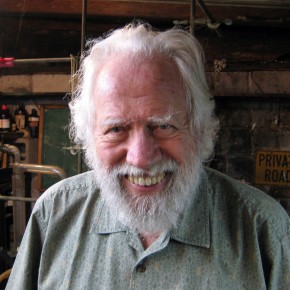
Too Big for a Nobel Prize: Remembering Sasha Shulgin
David Presti celebrates Sasha Shulgin in the most recent MAPS Bulletin. Alexander “Sasha” Shulgin was born in Berkeley on June 17, 1925, and received his bachelor’s (1949) and doctorate (1955) degrees from the local college, the University of California in Berkeley. Except for some time spent as an undergraduate at Harvard and a stint in the U.S. Navy during World War II, he lived his entire life either in Berkeley or nearby in the East Bay. Sasha’s doctoral research in biochemistry at UC Berkeley developed methods for the synthesis of amino acids containing chemical isotopes of carbon and nitrogen....

A Conversation with MDMA-Assisted Psychotherapy Researchers
This interview originally appeared in the MAPS Bulletin Winter 2014 Vol. 24, No. 3 – Annual Report. Featuring Annie Mithoefer, B.S.N., Shannon Clare Petitt, I.M.F., Saj Razvi, L.P.C., Ben Shechet, and Will Van Derveer, M.D, it sheds a great deal of light on MDMA-assisted therapy and the people behind MAPS. Annie Mithoefer, B.S.N., is a co-investigator for MAPS’ study of MDMA-assisted psychotherapy for service-related PTSD in U.S. veterans, police officers, and firefighters in Charleston, SC. She is also a Registered Nurse, Grof-certified Holotropic Breathwork Practitioner and is trained in Hakomi Therapy and can be reached at amithoefer@me.com. Shannon Clare Petitt,...
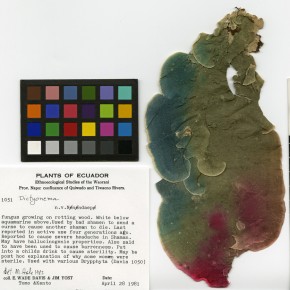
New species of lichen is apparently psychedelic: Dictyonema huaorani
25 February 2015 — This article has been updated to better reflect the limitations of the study. A new species of lichen has been discovered in the Ecuadorian Amazon rainforest, according to a recent paper published in The Bryologist. Researchers led by lead author Michaela Schmull have tentatively identified tryptamine and psilocybin in the lichen, among other potential substances. The story is a rather unusual one. There is only one known sample of the lichen in all of Western science, and it was collected in 1981 by ethnobotanists Wade Davis and Jim Yost while conducting research in Ecuador. In a...
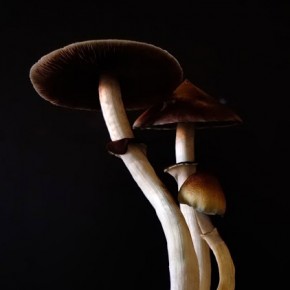
Psilocybin may help treat alcoholism, according to new study
According to a new study published in Psychopharmacology, psilocybin may be useful in treating alcohol dependence. The research was conducted at the University of New Mexico by a research team including lead author Dr. Michael Bogenschutz, and Dr. Rick Strassman. Yes, that Rick Strassman — the one who performed pioneering DMT research in the 1990s and authored DMT: The Spirit Molecule. With only ten human subjects, this was a “proof of concept” study — the researchers aimed to show that the drug is effective for treating alcohol dependence, and to provide a baseline for further studies. “Although recent studies have...
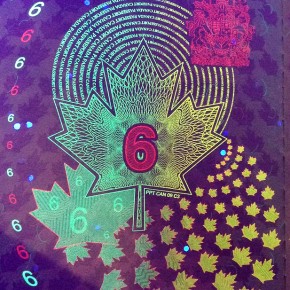
Canada’s new passports have a very trippy secret
Passports — those forgettable little booklets, churned out of some faceless bureaucracy and distributed to the masses to reduce each human to a barcode and a grainy, grim looking photo. Nothing could be more boring, right? Not in Canada. In Canada, passports are groovy — even better, secretly groovy. Canadian passports are like superheros — by day, timid and unassuming, blending in with the rest of the world’s official identification documents. But at night? They become glowing, crime-fighting mutants. If you have a black light, that is. And except for the crime-fighting mutants part — but they definitely glow. A spokesperson for Citizenship and Immigration Canada...
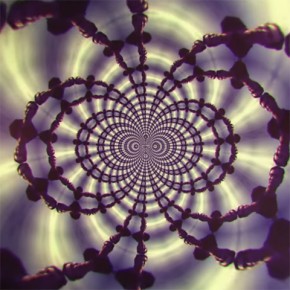
New Video from Jason Silva: ‘Drugs As Tools For Spirituality’
“The new space is inner space,” says Jason Silva in his new video. It’s the latest edition in his series of thought-provoking short-films called Shots of Awe, which continues to live up to its name. This episode focuses on MAPS — the Multidisciplinary Association for Psychedelic Studies — and the importance of set and setting in maximizing the potential of a psychedelic session. He name-drops Timothy Leary, who stressed the importance of preparing a positive tripping environment for yourself. “You are immediately plunged into a dialogue with your own subconscious,” Silva says. Meanwhile, “The world becomes like a sensurround system. The...
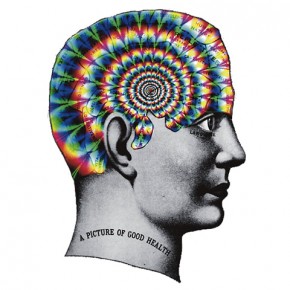
Psychedelics linked to reductions in suicide and distress
People who have used psychedelic drugs are less likely to suffer from depression, psychological distress, or suicidal thinking, according to a new study published in the Journal of Psychopharmacology. The research was led by Peter Hendricks, a professor of clinical psychology at the University of Alabama at Birmingham, using data from the National Survey on Drug Use and Health. Survey responses from over 190,000 adults were analyzed and the respondents were divided into two groups — lifetime psychedelic users and non-users. Lifetime users were defined as those who had ever, even once, tried DMT, ayahuasca, mescaline, psilocybin mushrooms, or LSD. 13.6%...
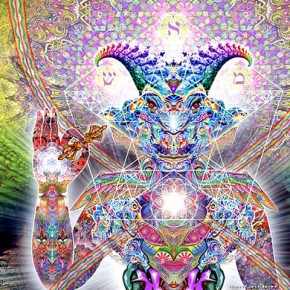
Dreaming While Awake An Examination of Hallucinations by Mike Jay
Today’s guest post is by Mike Jay, the celebrated author of High Society, an illustrated global history of drugs, among other books. His essays have appeared in Aeon Magazine, The Wall Street Journal, and the London Review of Books, covering topics as diverse as drugs and creativity, flying potions, influencing machines, brainwashing, and opium pipes. In February 1758 the 90-year-old Charles Lullin, a retired Swiss civil servant whose sight had been progressively failing since a cataract operation five years before, began to see considerably more than he had become accustomed to. For the next several months he was visited in his...
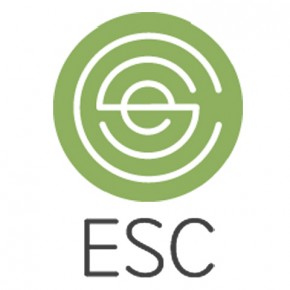
Damning Critique of ESC, the Sustainable Ayahuasca Non-Profit
You may have heard of ESC, the Ethnobotanical Stewardship Council which bills itself as “a nonprofit organization dedicated to improving lives by assuring the sustainability and safe use of traditional plants.” They recently raised over $20,000 in an Indiegogo campaign. Their aims may seem honorable enough, but not everyone is impressed. Below is a scathing condemnation of the ESC’s structure, methods, and plans for the future, signed by a number of academics and other concerned parties. (via PsyPressUK) Statement Critiquing the Ethnobotanical Stewardship Council (ESC) (*) We, the academics and other experts undersigned, manifest publically our rejection...

